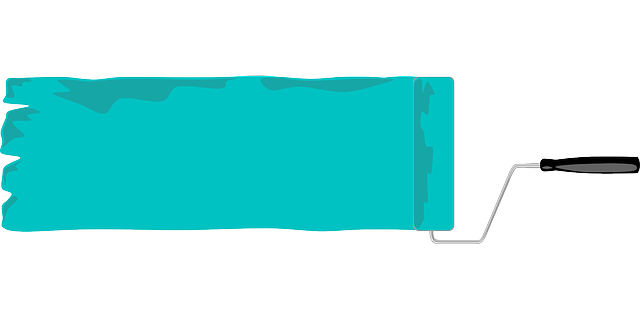Understanding contractor financing fees is essential for transparent and successful home improvement projects. Homeowners should gather detailed project cost information, evaluate financing options based on creditworthiness, desired loan amount, and repayment period, and break down costs into materials, labor, and overhead. Comparing quotes from multiple lenders, including online platforms, local banks, credit unions, and specialized companies, helps secure the best deal with competitive rates and flexible terms.
Estimating contactor financing fees for your home improvements can seem daunting, but it’s a crucial step to ensure budget transparency. This article guides you through the process of understanding and accurately predicting these fees. We’ll explore what financing charges cover, from materials and labor to overhead costs. Learn how to gather essential project details, calculate expenses, and compare quotes from multiple financiers to secure the best deal for your home improvement journey.
- Understanding Contractor Financing Fees: What They Cover
- Gather Necessary Information for Accurate Estimation
- Calculate Project Costs: Materials, Labor, and Overhead
- Factor in Financing Charges and Interest Rates
- Compare Quotes from Multiple Financiers to Get the Best Deal
Understanding Contractor Financing Fees: What They Cover

When it comes to home improvements, understanding contractor financing fees is key to a successful and financially transparent project. These fees go beyond just lending money; they encompass various costs associated with facilitating the improvement process for homeowners. From processing applications to managing repayments, these fees cover administrative tasks that enable contractors to offer flexible payment options.
In essence, contractor financing fees include processing charges, interest rates, and any additional costs incurred by the financier or lender. These expenses are often passed on to the homeowner but should be clearly outlined in the loan agreement. By understanding what these fees entail, homeowners can make informed decisions when selecting a financing option for their home improvements.
Gather Necessary Information for Accurate Estimation

To estimate contractor financing fees for home improvements accurately, it’s crucial to gather comprehensive information about your project. Start by defining the scope and scale of the work, including details like repairs, renovations, or additions. Next, consult with multiple contractors to obtain detailed proposals that outline specific tasks, materials, and labor costs. These proposals will serve as a solid foundation for comparing financing options later on.
Additionally, consider factors such as your creditworthiness, desired loan amount, and repayment period when evaluating contractor financing options. Keep records of all quotes and financing terms from different contractors to ensure you make an informed decision that aligns with your budget and home improvement goals.
Calculate Project Costs: Materials, Labor, and Overhead

When considering contractor financing for home improvements, a thorough understanding of project costs is essential. The first step in estimating financing fees involves breaking down the total cost into three key components: materials, labor, and overhead. Materials refer to all the physical elements required for the project, such as building supplies, fixtures, and equipment. Labor includes the time and skill invested by contractors and their teams, covering everything from initial planning to final installation. Overhead encompasses various operational expenses like insurance, permits, and administrative costs associated with managing the project.
Each of these categories plays a significant role in determining the overall financing fee. Accurately calculating them ensures you have a realistic budget, helping to avoid financial surprises during or after your home improvements. By understanding these costs, homeowners can make informed decisions about financing options, whether through traditional loans, contractor financing plans, or other creative funding methods.
Factor in Financing Charges and Interest Rates

When estimating costs for home improvements with contractor financing, it’s crucial to factor in financing charges and interest rates. These fees can significantly impact the overall budget, especially for larger projects that span months or even years. Contractor financing often involves a range of charges, from origination fees to annual percentage rates (APRs), which can vary depending on the lender and your creditworthiness.
Understanding these costs is key to budgeting effectively. Compare different financing options offered by contractors or banks to find the best deal for your home improvement project. Keep in mind that interest rates, whether fixed or variable, will affect the final cost of the loan. Being transparent about these charges ensures you have a clear picture of what you’ll be paying beyond the initial improvement costs, enabling better financial planning and decision-making for your home upgrades.
Compare Quotes from Multiple Financiers to Get the Best Deal

When exploring contractor financing for your home improvements, comparing quotes from multiple financiers is a strategic move to secure the best deal. This process allows you to gain insights into the market rates and terms offered by different lenders specialized in contractor financing. Start by gathering information from various sources, including online platforms, local banks, credit unions, and specialized financing companies. Request detailed quotes outlining interest rates, loan terms, and any additional fees associated with each option.
By comparing these quotes, you can identify financiers offering competitive rates and flexible terms tailored to your home improvement project. This comparative analysis empowers you to make an informed decision, ensuring you get the best value for your investment in contractor financing for your home improvements.
When estimating contractor financing fees for your next home improvement project, it’s crucial to approach it systematically. By understanding what these fees cover, gathering all necessary information, calculating project costs accurately, factoring in financing charges and interest rates, and comparing quotes from multiple financiers, you’ll be well on your way to securing the best deal for your upcoming renovation. Remember, knowledgeable planning is key to successful home improvements with minimal financial stress.
